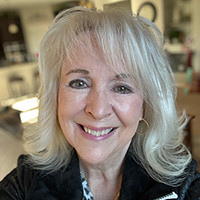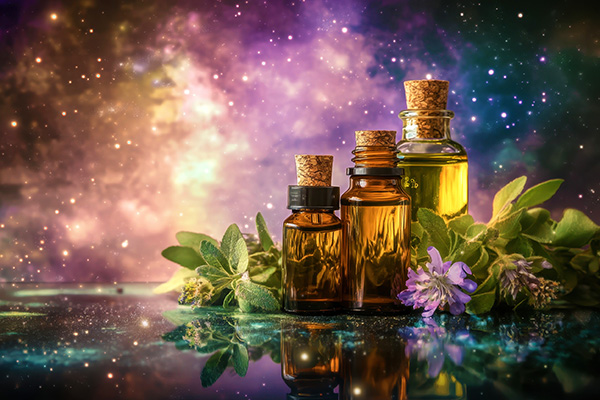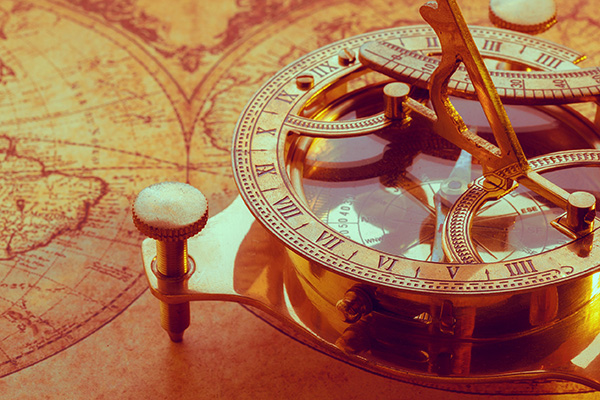 Have you ever realized how certain days everything seems to flow smoothly? You feel light-hearted, connected, and brimming with happiness. Yet, there are days when it seems like you’re trudging through thick emotional sludge. What causes this difference? It all comes down to your vibration.
Have you ever realized how certain days everything seems to flow smoothly? You feel light-hearted, connected, and brimming with happiness. Yet, there are days when it seems like you’re trudging through thick emotional sludge. What causes this difference? It all comes down to your vibration.
Your unique vibration is the energy frequency you emit. It constantly shifts based on your thoughts, feelings, surroundings, and spiritual practices.
Here’s the reality: Recognizing your vibration is crucial. When you tune in, you gain the power to act. Lacking awareness can easily lead you back to outdated, low-energy patterns that push you away from your core.
Negative energy is not just unpleasant — it draws even more negativity. The longer you linger in it, the harder it is to escape.
That’s why shifting your energy as soon as you become aware of slipping into negativity is vital. Like attracts like, so if you seek more peace, joy, and abundance, you must align with those energies.
Your vibration impacts everything. It shapes your relationships, health, spiritual connection, and even your luck. Low vibrations are frequently associated with negative emotions like fear, anxiety, and doubt. However, the bright side is that… High vibrations foster clarity, love, intuition, and flow. Keeping a high frequency in today’s hectic world may not always be easy, but the effort is undoubtedly worthwhile.
Even when everything around you seems unsteady, you can alter your internal state as soon as you become aware of it. This awareness is more than half the battle! Truly, awareness is your superpower. The moment you catch yourself spiraling, change your mindset. Switch the channel in your mind.
Everything you require to attain your greatest desire is already within you. However, it cannot manifest until you align with it, release the barriers to it, and elevate your vibration to the level where it already exists ~ Derek Rydall
Awareness Is Key
So, what should you do when you detect a decrease in your energy? The first step is to acknowledge it. This awareness is empowering because it’s akin to illuminating a dark room. Once that light is on, you can discern the situation and initiate changes.
There are countless methods to elevate your vibration, ranging from deeply spiritual to beautifully simple. Some individuals swear by Transcendental Meditation or Kundalini yoga. These practices help to harmonize your energy and elevate your level of consciousness. Yet, sometimes, all it takes is a saltwater bath. Water naturally purifies, and when infused with intention, it turns sacred.
Need a rapid vibrational cleanse? Try sage spray. Add a few drops of sage essential oil to a spray bottle filled with water. Shake it up and mist it over your head. It works like an energetic dry shampoo, cleansing your aura and shifting your energy in a matter of seconds.
Do not neglect your physical environment, either. A cluttered, dusty home can drag down your energy much faster than you might realize. Keep your living space clean, bright, and filled with love. Invoke your angels and ask them to imbue your space with light and tranquility. Remember, you are always supported, even when you can’t perceive it.
Deliberately Shifting Your Energy
Energy is in perpetual motion. Guess what? You have the autonomy to choose how you respond to the world around you. Every moment presents an opportunity to select light over darkness. When someone tests your patience or life throws a surprise, you can either respond with poise or spiral into stress. Choose light. Choose love.
Embrace your power. You are not a victim of your circumstances. You are an influential co-creator of your existence. Every challenge offers a chance for growth and an expansion of your consciousness. The energy you project into the universe returns to you tenfold, so why not make it positive?
Feeling exhausted? Move your body! Energy gets stuck when we remain sedentary for too long. Dance, stretch, walk, or jump — just get the energy circulating! You’ll feel lighter in no time.
Never forget that you have spiritual allies at your side. Your angels, guides, and archangels are always ready to assist. Call on Archangel Michael if you feel lost or burdened. Ask him to sever the energetic cords that are no longer beneficial and assist you in realigning with your highest self. Simply invoking divine support can rapidly transform your vibration.
This journey isn’t about perfection. It’s about intention. There will always be more to learn, heal, and expand into. Your vibration is a lifelong dance with energy. The key is to keep moving.
Your personal vibration or energy state is a mix of the contracted or expanded frequencies of your bodily emotions and thoughts at any particular moment. The more you permit your soul to shine through you, the higher your personal vibration will be ~ Penney Peirce
Daily Strategies To Raise Your Vibe
So, how do you sustain a high vibration every single day? It commences with consistent, intentional actions. Here are 20 practical suggestions to keep your frequency elevated:
Vibrational habits are little daily rituals that accumulate and create a resilient and radiant energy field around you. Integrating just a few of these practices can profoundly impact your overall health, happiness, and well-being.
Morning Gratitude: Begin your day by focusing on what you appreciate. This simple practice reroutes your perspective to one of abundance and positivity right from the get-go.
Intentional Hydration: Infuse your drinking water with positive intentions. As you sip, visualize the water cleansing and invigorating your body on a cellular level.
Quick Meditation: Dedicate just five minutes daily to quiet your mind and concentrate on your breath. Even short meditation sessions can considerably diminish stress and foster inner tranquility.
Essential Oils: Use high-frequency essential oils like frankincense or lavender. Diffusing or applying these oils can uplift your mood and establish a sacred atmosphere.
Uplifting Audio: Listen to music that elevates your spirit or select 432 Hz frequency tones. These sounds can positively impact your brainwaves and emotional state.
Space Cleansing: Burn sage or palo santo to eliminate stagnant or negative energy from your surroundings. This ancient ritual purifies your space and enhances clarity.
Zen Environment: Maintain a cleansed, minimalistic, and organized living and working area. A decluttered environment can lower mental clutter and promote a sense of calm.
Conscious Breathwork: Engage in intentional breathing exercises to regulate your nervous system. Deep, mindful breaths can swiftly calm your body and mind, centering you.
Joyful Laughter: Seek opportunities to laugh heartily every day. Laughter is a powerful remedy for stress, releasing endorphins and enhancing your overall well-being.
Restorative Baths: Indulge in salt baths to cleanse your energetic field. The salt aids in removing impurities and negative energy, leaving you feeling refreshed and invigorated.
Positive Company: Surround yourself with individuals who uplift and inspire you. The energy of those near you significantly affects your own vibration, so be selective.
Media Minimalism: Limit your exposure to news and social media, often sources of negativity. Consciously curate your information intake to safeguard your energy.
Nature Immersion: Spend time outdoors in natural settings as much as possible. Connecting with nature grounds your energy and rejuvenates your spirit.
Affirmation Routine: Regularly recite affirmations that empower and uplift you. These positive statements reprogram your subconscious mind for success and happiness.
Light Visualization: Visualize divine light surrounding and permeating your entire being. This potent technique can cleanse your aura and fill you with radiant energy.
Energetic Movement: Dance or participate in any form of joyful physical activity. Moving your body helps release stagnant energy and encourages a vibrant flow of vitality.
Candle Magic: Light candles with the specific intention of inviting divine light into your environment. The flame can symbolize clarity, warmth, and spiritual connection.
Journal Release: Write in a journal to process and release emotional clutter. This practice offers an outlet for your thoughts and feelings, fostering emotional well-being.
Compassionate Living: Extend kindness and compassion towards others without expecting anything in return. Acts of service and genuine empathy elevate both the giver and the receiver.
Divine Assistance: Remember to ask your guides, ancestors, or angels for help when needed. Opening yourself to divine support can bring comfort, direction, and peace.
Keep in mind, your energy is sacred. Protect it. Nurture it. Most importantly, stay aware. That awareness is your path to transformation.
Continue to shine brightly! The world needs your light.
|
 About The Author: Venus About The Author: Venus
Venus resides in Arizona and has supported clients using her array of psychic abilities for over two decades. She was endowed with Clairvoyant, Clairaudient, Clairsentient, and Empathic gifts and is also a certified Life Coach and Reiki practitioner. Deceased loved ones frequently enter a reading, either invited or spontaneously, to convey their messages. Insights also flow from her direct communication with Spirit and Angels, delivering the client the guidance they need to propel them towards joy, rewards, and success in their lives. In addition to being a psychic, life coach, and Reiki practitioner, she has also served as a teacher and conducted seminars over the past ten years to assist others in embracing their higher knowledge. If you seek a compassionate psychic who can immediately attune and channel without tools, you’ll wish to have a reading with Venus at: PsychicAccess.com.
|
Sustaining a positive mood is crucial for overall wellness and mental health. It can be tough to remain optimistic, particularly during challenging times or when confronted with stressors. However, there are numerous tips and strategies that can support you in maintaining a positive mood each day. Here are several tips to help you stay positive and uplifted:
1. Practice gratitude: Dedicate a few moments each day to contemplate the things you’re thankful for. This can shift your focus from negative thoughts to positive ones and remind you of the good in your life.
2. Surround yourself with positivity: Be in the company of positive individuals who uplift and support you. Steer clear of negative influences and toxic relationships that can drag you down.
3. Engage in activities that bring you joy: Allocate time for activities that fill you with happiness, whether it’s spending time with loved ones, diving into a hobby, or engaging in physical fitness. Doing things you love can help enhance your mood and overall well-being.
4. Practice mindfulness: Mindfulness entails being present in the moment and observing your thoughts and feelings without judgment. Practicing mindfulness can help you remain grounded and focused, alleviating stress and anxiety.
5. Take care of your physical health: There is a close link between physical health and mental well-being. Ensure that you prioritize your physical health with a balanced diet, regular exercise, and sufficient sleep. Caring for your physical health can enhance your mood and overall state of well-being.
6. Practice self-care: Schedule time for self-care activities that assist in relaxation and rejuvenation. These might include activities like taking a bath, reading, meditating, or practicing yoga. Looking after yourself can help you feel more positive and energized.
7. Challenge negative thoughts: When negative thoughts manifest, confront them with positive affirmations or reframing techniques. Substitute negative thoughts with positive ones to help adjust your mindset and sustain a positive mood.
8. Seek support: If you’re having difficulty maintaining a positive mood, don’t hesitate to seek assistance from a therapist, counselor, or trusted friend. Discussing your feelings and emotions can help you process them and discover effective coping methods.
By incorporating these suggestions into your daily routine, you can assist in maintaining a positive mood and enhancing your overall well-being. Keep in mind that it’s normal to experience ups and downs, but by consistently applying these strategies, you can cultivate a more positive perspective on life. Continue reading →
















